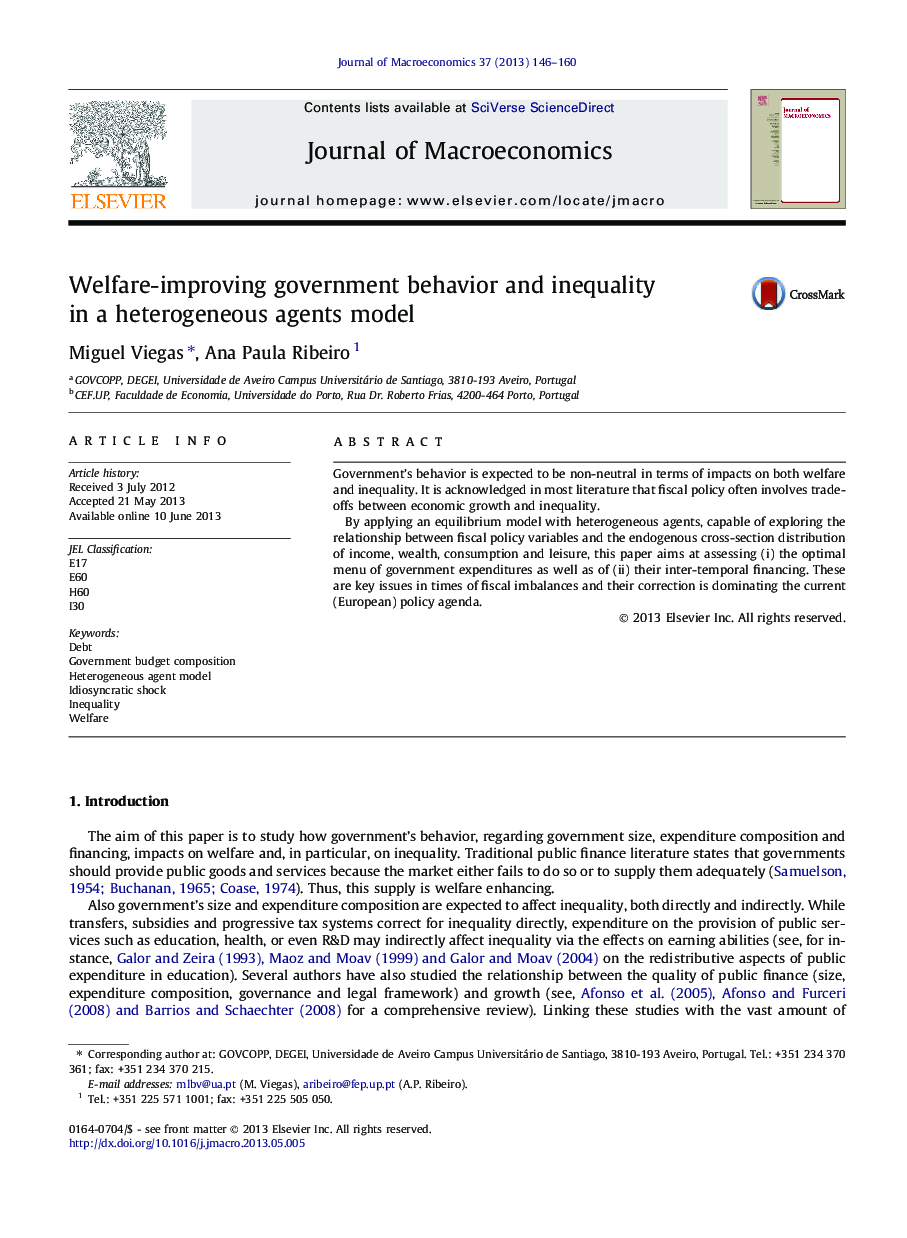| Article ID | Journal | Published Year | Pages | File Type |
|---|---|---|---|---|
| 964943 | Journal of Macroeconomics | 2013 | 15 Pages |
•Fiscal policy often involves trade-offs between efficiency and inequality.•Our heterogeneous agents model explores fiscal policy.•This paper aims at assessing the optimal menu of government’s expenditures.•This paper aims at assessing the government’s inter-temporal financing.•These issues are of crucial importance for fiscal imbalances and their correction.
Government’s behavior is expected to be non-neutral in terms of impacts on both welfare and inequality. It is acknowledged in most literature that fiscal policy often involves trade-offs between economic growth and inequality.By applying an equilibrium model with heterogeneous agents, capable of exploring the relationship between fiscal policy variables and the endogenous cross-section distribution of income, wealth, consumption and leisure, this paper aims at assessing (i) the optimal menu of government expenditures as well as of (ii) their inter-temporal financing. These are key issues in times of fiscal imbalances and their correction is dominating the current (European) policy agenda.
